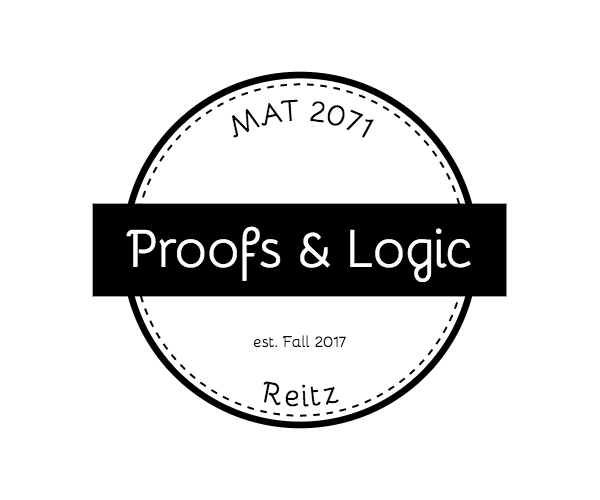If I was invited to give advice to entering students on the first day of Mat 2071 I would tell the students to always be prepare for class, and pay attention to the teacher when he or she is explaining the course. I would tell them to come in class at time, and do not miss a lot of days in order for them to keep in track. I would also advise them to always ask questions when they don’t understand something, and keep practicing the subject in class and also at home which would help them to progress and also succeed in the subject.
Month: September 2017 (Page 2 of 2)
This assignment is due Thursday, September 14, at the start of class.
Assignment. Choose ONE of the following two topics. Write a reply to this post, responding to the topic. Begin by telling us which topic you chose. (1-2 paragraphs).
Topics.
- Sometimes people can recognize a time when their opinion of math dramatically changed either for the better or the worse. If such a time happened to you, tell us about it.
- Choose an experience you had in which you suddenly understood a math concept (it could be any kind of math, from elementary school up through college). Describe what happened. Do you think you could explain it to others in a way that they could have the same flash of understanding?
Extra Credit. For extra credit, write a response to one of your classmates’ comments. Do you feel the same, or different? Did you learn anything? Did you get any ideas about teaching, or about learning?
Why are we doing this, anyway? We are following two ideas that have come up already in class — things that may not seem related to learning math, but research shows that engaging in these activities can dramatically increase the amount that you learn, and change the way you learn it. The first is writing – something not typically associated with mathematics. When you express your ideas in words, it forces you to think them through very carefully, detail by detail. A great way to check and see if you really understand something is to try to explain it to someone else, either out loud or in writing. Example: if you know how to add fractions, try teaching it someone who doesn’t know how. The second is called metacognition, or “thinking about thinking.” This happens when you think about what was going on in your head while you were working on a problem or trying to learn a new idea. What train of thought did you follow? Where did you get stuck, and what did you do next? What were you feeling at the time? and so on. Combining writing and metacognition can be a tremendously powerful tool in identifying the ways we learn best and the ways we make mistakes, and learning to improve. However, like any skill, it takes practice. That’s why we’re getting started by writing a little about our past experiences with mathematics.
Week 2 Assignments
Written work – Sec 1.8 p.28: 3, 5, 6, 8, Due Tuesday, September 12th, at the start of class.
NOTE: On this assignment, odd problems are worth 3 points, even problems worth 5 points.
WeBWorK – Assignment #2, due Tuesday, September 12th, at midnight.
OpenLab – OpenLab #2, due Thursday, September 14th, at the start of class.




Recent Comments